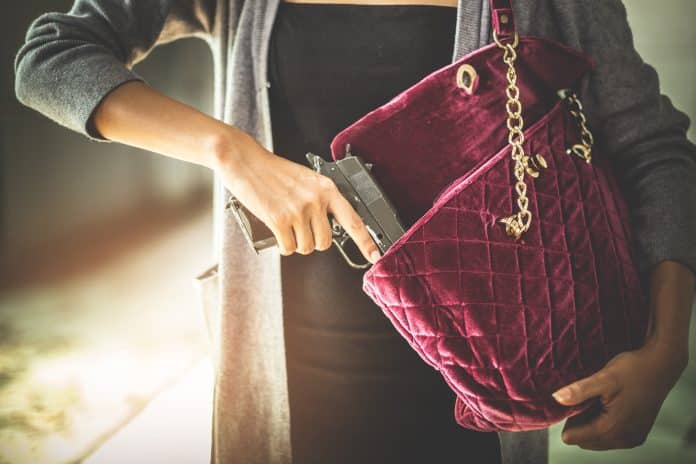A measure allowing Floridians to carry concealed weapons without a concealed weapons license is now law. Gov. Ron DeSantis signed the measure during a signing event on April 3. The bill also allows private schools to establish a Guardian Program that allows teachers in Florida to carry a gun in their classrooms as long as they participate in a 144-hour training program.
“Constitutional Carry is in the books,” DeSantis said during that signing event.
House Bill 543, Public Safety, and its twin State Senate Bill SB 150 represent a comprehensive safety package that eliminates the need for concealed weapon licenses in Florida but continues to require full and complete background checks wherever a firearm is purchased, as well as a mandatory three-day waiting period for all types of firearms.
It also requires that anyone carrying a concealed weapon obey existing laws that prohibit carrying the weapon in places like schools, certain athletic events, correctional facilities, and others.
In addition, the measure requires the Office of School Safety of the Florida Department of Education to develop a behavioral threat management operational process. The process will help public and charter schools identify, assess, manage, and monitor potential and real threats. The Office of School Safety is required to create a Florida-specific behavioral threat instrument to help schools evaluate students’ behavior who may pose a very serious threat to school staff or students. The Office of School Safety also must coordinate interventions and services for the students and parents.
Also, it requires all law enforcement agencies within the state to have an active assailant response policy by October 1 and provide law enforcement training on an annual basis.
Finally, the bill creates the Florida Safe Schools Canine Partner Program, which allows a person, school, or business entity to pay for or raise funds for a law enforcement agency to purchase, train, or care for a firearm detection dog. Under the measure, students in K-12 schools are also encouraged to partner with law enforcement to fundraise in the local community for donations to purchase, train, or care for the dog.
The dogs serve as liaisons between students and law enforcement agencies and as ambassadors for law enforcement agencies to improve community engagement.
The measure becomes effective on July 1.

